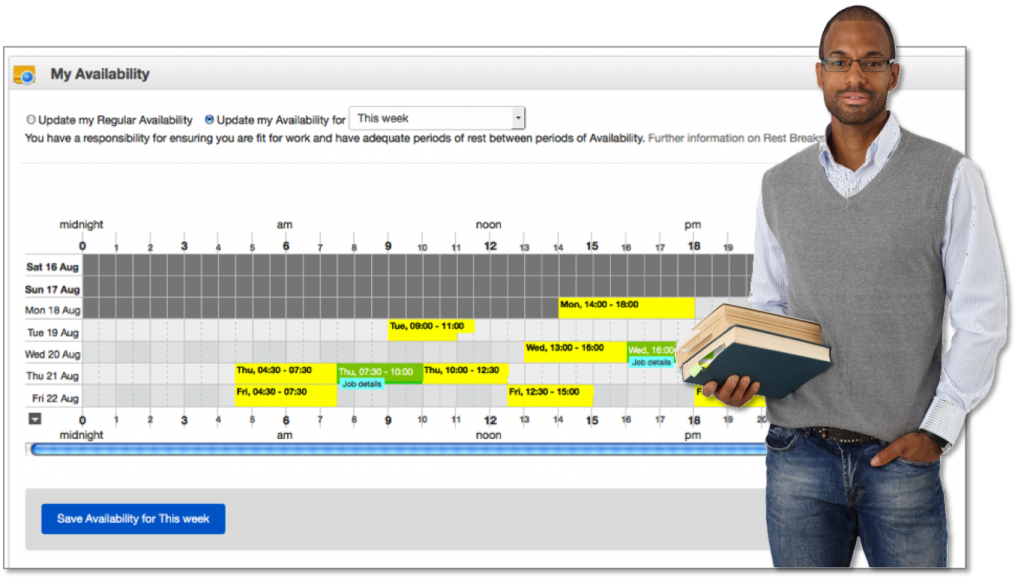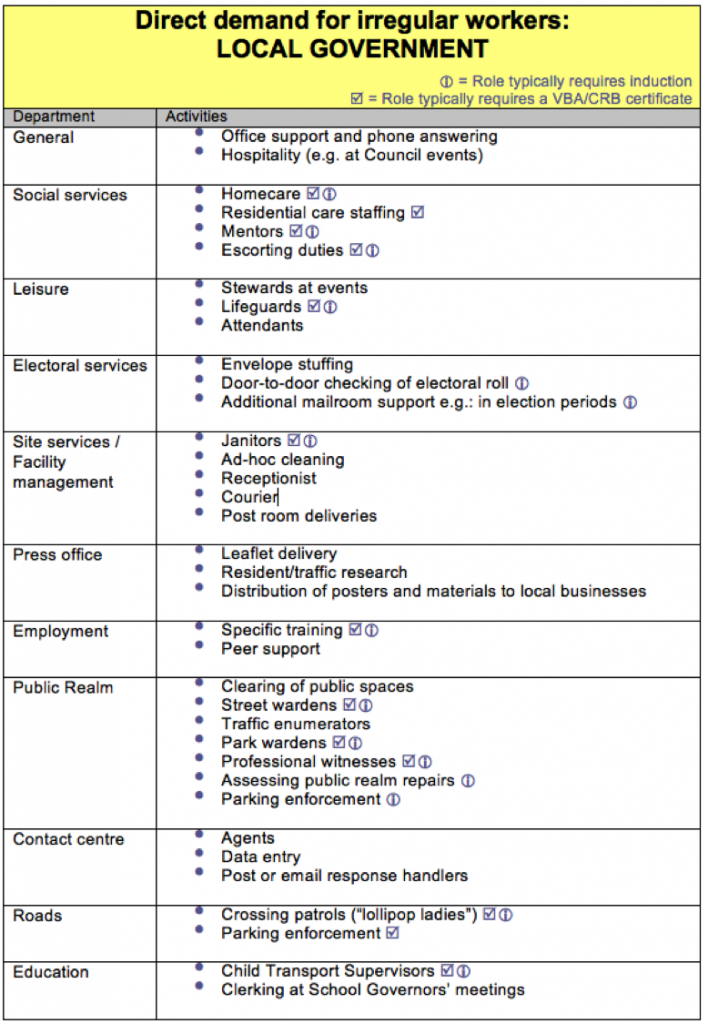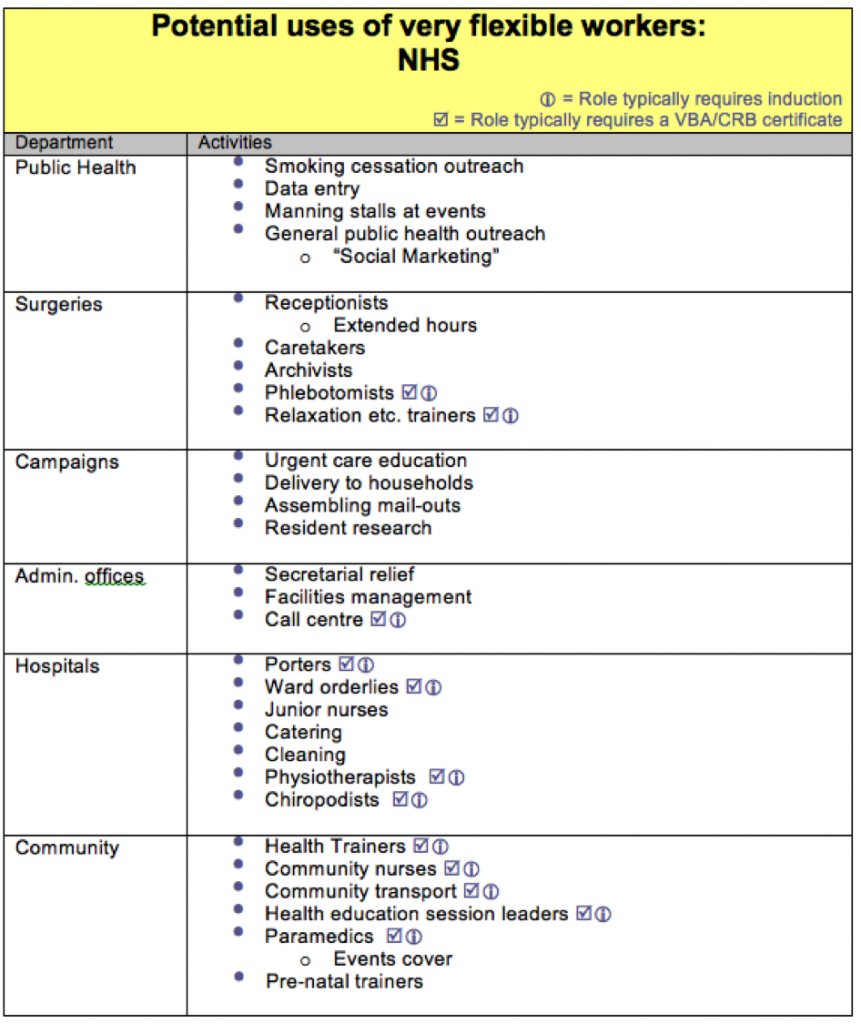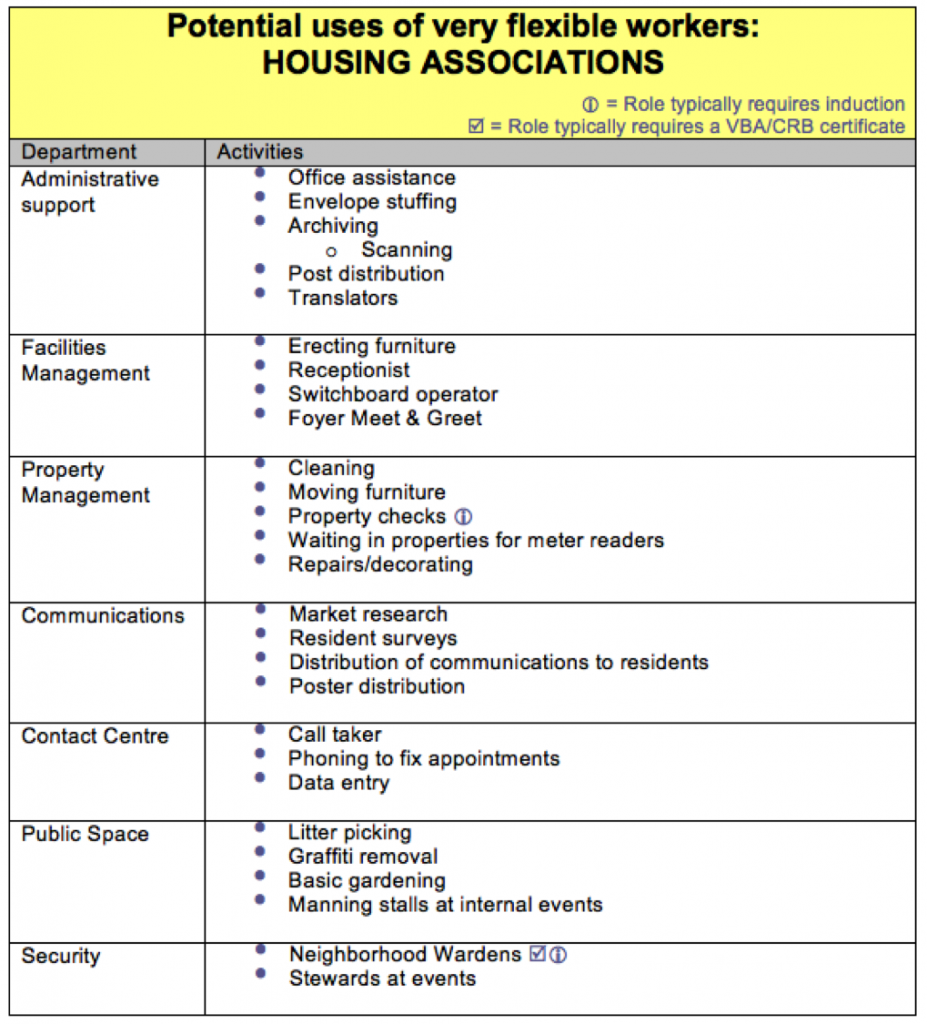[ezcol_2third] A distinctive tool for economic development is freely available. To succeed in any area it needs certain conditions.
A distinctive tool for economic development is freely available. To succeed in any area it needs certain conditions.
From e-innovations to The White House
In 2005, Office of Deputy Prime Minister (now CLG) set up the e-innovations fund. It enabled radical solutions to coming problems for local government. £500,000 was spent on core technology for a new kind of marketplace for odd hours of work. World leading technology was built.
 Some 25 authorities (opposite) invested further, actually starting a market or exploring the possibilities of doing so. These projects had a variety of names: Worklink, Guaranteed Markets, WorkYourWay, Slivers of Time, Neighbourhood E-Markets, NEMs, Work4You, Probe.
Some 25 authorities (opposite) invested further, actually starting a market or exploring the possibilities of doing so. These projects had a variety of names: Worklink, Guaranteed Markets, WorkYourWay, Slivers of Time, Neighbourhood E-Markets, NEMs, Work4You, Probe.
Department of Health put in over £1m. Books, policy papers and countless articles were published. The pilots did not succeed as hoped. But there was a lot of learning.
The technology, learning and networks around these markets has now come together in “Beyond Jobs”. Interest in our work has come from multiple countries. In the last 3 months we have presented at The World Bank, Federal Reserve, National League of Cities and The White House.
But we continue to drive towards sustainable UK launches. This page offers a path for any GLA member willing to explore this possibility.
The problem to be solved
Around 22% of your population will need irregular work at some point each year. All indicators suggest that figure is growing. 1.8m adults in the UK are now partially employed: seeking additional hours that fit around, often fluctuating, requirements of a primary employer.

Data are thin at this end of the labour market. But reports suggest accelerating demand as well as supply. The “Sharing Economy” is one part of irregular work. Services employers dominate blue collar work, often driven by responsiveness.
Irregular workers often fall through the gaps, ignored by national employment programmes and constantly tempted by the shadow, untaxed, economy. The quality of markets they can access is crucial to their opportunities. But the markets lag behind what is now taken for granted in other parts of the economy. More on irregular workers.
The solution: a new type of market
It is easier for your citizens to book a tailored vacation package around the world than to employ an irregular worker (or volunteer) for a couple of hours. Markets in sectors like travel have become one-click simple. Try telling Expedia you want a holiday in Australia; see how it instantly assembles flights, rooms, hire cars into fully priced, genuinely available, bundles to fit your dates and plans.
Now imagine an older lady wanting two hours of support for housework later today. Even the best markets involve sending messages, waiting for replies, negotiating arrangements. But she could be a delightful client. There will be many fully vetted individuals living locally wanting some extra income, or willing to volunteer for her, today.

Our mission is to make thousands of types of irregular work Expedia-easy for employers while giving workers unparalleled levels of control and opportunity. That required new marketplace technologies. These were built entirely in Britain. Details about the markets are here.
Implementation
There were many disparate launches of these markets at different stages in their development. Typically each launch was swamped by supply; people who need to work/volunteer this way came on board in droves. But the demand side of the market was slower to adapt so hardly anyone got booked. That led to loss of interest on the supply side. With few workers/volunteers in the market, it then had little chance of meeting the requirements of anyone trying to make a booking.
Supporting those small scale pilots became unsustainable for the company behind earlier projects. Debts mounted. Unfortunate governance issues complicated searches for a solution. Eventually, technology, learning and networks were spun out into Beyond Jobs. Remaining assets were sold.
The Beyond Jobs technology is available to any area that has the conditions for a robust, sustainable, launch of these markets. That has to be demand-led. To get a market to critical mass takes a minimum £1.5m of demand for contingent labour over its first 12months. That demand has to be clustered in one easily travelled area, for example a city centre.

This demand is most likely to come from some combination of a local authority, the NHS, housing associations and other organisations related to the public sector. Of course, the market can be opened to SME’s, householders and corporate employers. But it is unlikely they can provide the demand during a launch stage. More on this.
Do we have the demand in our area?
A state-of-the-art market for hour-by-hour work could bring many people out of the shadows. It could be a much better way of delivering services, particularly if budgets are devolved to hyper-local level. For example a ward could be given a £5,000 annual budget for public realm work. The markets ensure penny-by-penny accountability to local people.
Likewise, Personal Budgets become much more effective if there is a deep market for hour-by-hour work with full competition between agencies. Budget holders can decide a list of workers/volunteers they like then see how many are available at any given times and book when they wish. Spending can be controlled to keep it within a budget.
Getting to this is no longer about technology. It’s about market making. There are a wide range of roles within the public sector that are often best done by local people working hour-by-hour. In a Council, they include:

Care is evolving. Traditional NHS, roles like those below should be scrutinized to see if existing agency arrangements can be diverted into a new channel for local people:

Housing Associations also have a need for irregular work. Typically that is in roles such as:

Checklist for implementation
Even when a Council or LEP want to act as catalyst for such a market they sometimes can’t. Many have signed a monopoly agreement with an outsourcer or large agency for contingent labour requirements. Checking if your anchor employers are locked into a binding restriction of this sort is the first check to be done by someone exploring a launch.
 Assuming there is no agreement, or it allows the client to insist on a new channel, the next issue is time-effectively modelling the available demand. It is dotted throughout multiple departments. Social care is particularly worth investigating; how genuinely responsive is the market for on-demand homecare? How much demand could be unlocked by a better market?
Assuming there is no agreement, or it allows the client to insist on a new channel, the next issue is time-effectively modelling the available demand. It is dotted throughout multiple departments. Social care is particularly worth investigating; how genuinely responsive is the market for on-demand homecare? How much demand could be unlocked by a better market?
After that, a high level champion in the organization will help. It is unlikely heads of postroom, contact centre, reception, security, catering, office services and multiple other departments will unlock their demand without a sense that there is heavyweight commitment to a new model of casual work in the organization.
Next steps
What will this cost? It depends on the scale of commitment that can be unlocked. The markets can fund themselves through a small charge added to the buyer’s account within each transaction. But that requires enough volume of demand to reach sustainability.
If this kind of market aligns with your strategy and you are not hindered by monopolistic agreements, it would be good to talk: Wingham Rowan, Director, Beyond Jobs:
![]()
[/ezcol_2third] [ezcol_1third_end][/ezcol_1third_end]
